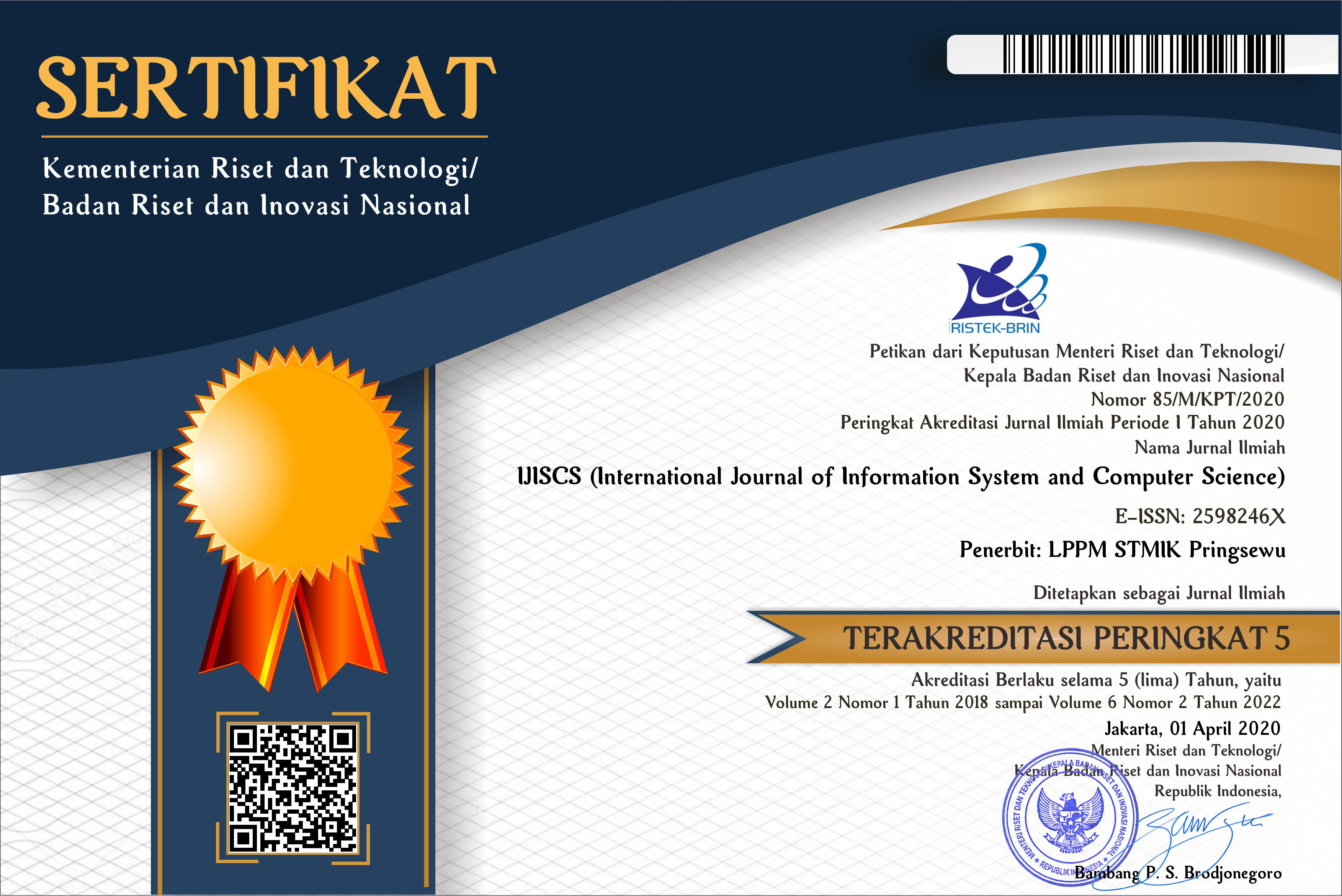A MACHINE LEARNING MODEL FOR SOBRIETY AND RELAPSE ANALYSIS IN DRUG REHABILITATION
(1) Computer Science Programme, Bowen University, State of Osun
(2) Computer Science Programme, Bowen University, State of Osun
 Corresponding Author
Corresponding Author
Abstract
Drug abuse has become so paramount among members of society. Although, the initial decision to take drugs is typically voluntary among victims. As drugs are constantly been used, the ability to exert self-control on them is relatively impaired. Thus, abuse is witnessed in different age groups, gender, and celebrities from all walks of life. While addicts become such owing to several factors of curiosity and peer pressure, recreational purpose, source of inspiration, and more, the effect of these drugs can lead to depression, brain stimulation, and hallucination. Managing drug abuse through behavioral or pharmacological means is intended to help addicts stop habitual drug use. Oftentimes, rehab is not effective because the desired change is absent while a proper technological-driven approach to track sobriety and relapse in compulsive drug seeking and usage is also missing. Consequently, in this research, user-friendly and interactive sobriety and relapse predictive management application is developed. Here, addicts' behavioral and demographics with major relapse monitoring factors were clustered to predict the likelihood of relapse. The relapse predictive system using cognitive behavioral patterns, adopts the logistic regression algorithm of the Bayesian network for both training and testing. The essence is to ascertain users’ addiction level, analyze and track sobriety and relapse in order to uncover drug addiction patterns, discover the probability of relapse occurrence towards recommending sustainable rehabilitation decision support
Keywords
References
Miech R, Schulenberg J, Johnston L, Bachman J, O’Malley P, Patrick M. Monitoring the Future National Adolescent Drug Trends in 2017: Findings Released. Ann Arbor, MI: Institute for Social Research, The University of Michigan;2017.
Jones CM, Paulozzi LJ, Mack KA. Alcohol Involvement in Opioid Pain Reliever and Benzodiazepine Drug Abuse–Related Emergency Department Visits and Drug-Related Deaths United States, 2010. Accessed September 18, 2018.
Sharma AK, Upadhyaya SK, Bansal P, Nijhawan M, Sharma DK. A study of factors affecting relapse in substance abuse. Education. 2012;2(17.033):17.033.
K. D. Brownell, G. A. Marlatt, E. Lichtenstein, and G. T. Wilson, “Understanding and preventing relapse,” 1986;41:765–82
https://qz.com/africa/1538843/nigeria-drug-abuse-14-million-adults-use-drugs/
Fadahunsi, Kayode Philip; Akinlua, James Tosin; O’Connor, Siobhan; Wark, Petra A; Gallagher, Joseph; Carroll, Christopher; Majeed, Azeem; O’Donoghue, John (March 2019). "Protocol for a systematic review and qualitative synthesis of information quality frameworks in eHealth". BMJ Open. 9 (3):e024722. doi:10.1136/bmjopen-2018-024722.
NIDA, “Overdose death rates,” https://www.drugabuse.gov/ related-topics/trends-statistics/overdose-death-rates, September-2017, online, accessed 25-March-2018.
Y. Fan, Y. Zhang, Y. Ye, W. Zheng et al., “Social media for opioid addiction epidemiology: Automatic detection of opioid addicts from twitter and case studies,” in Proceedings of the 2017 ACM CIKM. ACM, 2017, pp. 1259–1267
Breese GR, Chu K, Dayas CV, Funk D, Knapp DJ, Koob GF, Le DA, O’Dell LE, Overstreet DH, Roberts AJ, Sinha R, Valdez GR, Weiss F, 2005. Stress enhancement of craving during sobriety: A risk for relapse. Alcohol Clin. Exp. Res 29, 185–195.
Acion L, Ramirez MR, Jorge RE, Arndt S. Increased risk of alcohol and drug use among children from deployed military families. Addiction. 2013;108(8):1418–25.
Ming-Yuan Chih, M.H.A., M.S.,* Timothy Patton, B.S., Fiona M. McTavish, M.S., Andrew Isham, M.S., Chris L. Judkins-Fisher, B.S., Amy K. Atwood, Ph.D., and David H. Gustafson, Predictive Modeling of Addiction Lapses in a Mobile Health Application Published online 2013 Sep 10. doi: 10.1016/j.jsat.2013.08.004
Zhe Wang,1,† Shujuan Chen,1,† Junning Chen,2 Chunfeng Xu,2 Zhikang Chen,1 Wenxu Zhuang,1 Xu Li,1 Min Zhao,1,3 and Jiang Haifeng Theraleighhouse, “3 stages of drug addiction relapse: Emotional, mental & physical,” https://www.theraleighhouse.com/addiction-blog/resources-myself/ 3-stages-addiction-relapse-emotional-mental-physical, 7-September2017, online, accessed 25-March-2018.
Asghari A, Porshahbaz A, Farhodian A. Personality dimensions relevant to substance abuse relapse in the treatment of opioid dependence with methadone. J Res Addict. 2011;5(19):20-7.
Zhe Wang,1,† Shujuan Chen,1,† Junning Chen,2 Chunfeng Xu,2 Zhikang Chen,1 Wenxu Zhuang,1 Xu Li,1 Min Zhao,1,3 and Jiang Haifeng1, A Community-Based Addiction Rehabilitation Electronic System to Improve Treatment Outcomes in Drug Abusers: Protocol for a Randomized Controlled Trial Published online 2018 Nov 6. doi: 10.3389/fpsyt.2018.00556
Nastizayi N, Hezareh Moghadam M, Mollazehi A. The study of factors for recurred addiction from the view of self-introduced addicts to the addiction abandonment centers of zahedan. J Urmia Nurs Midwifery Faculty. 2010;8(3).
Article Metrics
Abstract View : 236 times
: 236 times Download : 60 times
Download : 60 times
DOI: 10.56327/ijiscs.v5i2.1015
Refbacks
- There are currently no refbacks.






